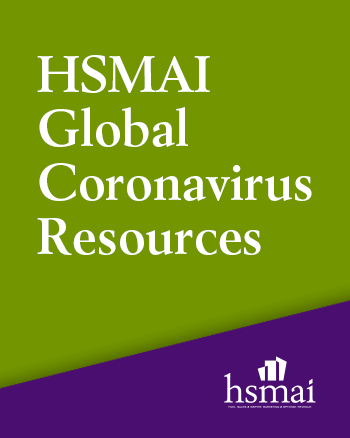By Kunal Shah, Travel & Transportation Practice Leader, ZS, and member of HSMAI’s Revenue Optimization Advisory Board
 What makes a good hospitality revenue professional during these uncertain times? Members of HSMAI’s Revenue Optimization Board (ROAB) discussed this question on a call on June 11. Their answers were wide ranging, but most agreed that it goes beyond simply being technically skilled — and that today’s environment brings soft skills into the limelight more than ever.
What makes a good hospitality revenue professional during these uncertain times? Members of HSMAI’s Revenue Optimization Board (ROAB) discussed this question on a call on June 11. Their answers were wide ranging, but most agreed that it goes beyond simply being technically skilled — and that today’s environment brings soft skills into the limelight more than ever.
Here in their own words are what ROAB members are doing to help their revenue teams, how they think those teams can improve leading up to recovery, and what they have seen change.
COMPASSION, UNDERSTANDING, AND PATIENCE
Members of the ROAB who serve as leaders in their companies have been pressed to step up even more during the coronavirus crisis. Compassion, understanding, and patience were the traits that members said were especially important to have during this time.
- “Even when things are rushed or feel like emergencies, try to have heartful, intentional conversations with team members. In many cases, when team members are furloughed, you don’t want to lose good people permanently, but you’ve had to part ways in some form right now. And I think there are genuine, heartfelt ways of handling that.”
- “There’s so many conversations happening at so many levels where you kind of get off [a call] and it affects you. And if you get on the next call and it’s still impacting your mindset, it’s going to be really difficult to be optimistic or to be that cheerleader for someone, especially for our subordinates who maybe have some concerns about their job security.”
- “I think that understanding that the isolation of both working at home and just all of the unknowns, really, can drive this underlying layer of paranoia in our team members. We have to make space and find the patience for that, because I have team members now that I rarely heard from once a month, but now they’re needing a lot more. I’m trying to listen as much as I can.”
- “One thing that I found to be really helpful is looking at what’s critical in terms of the work to get done and releasing them of a lot of the mundane things or advocating for them if they’re getting pushed to spend their time in ways that are unproductive. I think that that helps them feel supported, that they’re not necessarily on the hook for the same workload when their time is short that way. It’s all about the people side of the business right now.”
BALANCING RESPONSIBILITIES WITH REALITY
What should revenue teams be doing right now? According to ROAB members, there are many opportunities to take on more responsibility and to completely revamp existing systems and processes, but at the same time, teams should be wary about “over-diluting” the revenue optimization role .
- “You have to consider if you decimate your entire infrastructure or make changes that are permanent, that in 18 months, we could be back to a more balanced and traditional segment profile. That’s the tricky thing to say, ‘Is this a situation for the moment, or is this a situation that’s going to stick with us for years to come?’”
- “We’re dealing with the teams that are now supporting maybe different hotels or certainly more hotels than they have in the past, and we’re trying to let go of those things that were status quo behaviors and processes and thinking in a really scrappy way.”
- “We’ve been pushing our folks to not view this as a ramp back up after a catastrophic event, but almost a complete mindset shift where it’s day zero. We want to forgo how we’ve always done things. We’ve challenged each person to identify how they add value to the organization and focus on that.”
- “Another thing that we’ve got to take advantage of is this environment where people are spread thin for resources. Nobody is going to stop you or stand in your way from taking on more and from doing more and from taking ownership of stuff. I think revenue folks have the right mindset now, and a little bit of power to take over things and add value to different areas. Now is the time to do that.”
- “I think there’s a danger for scope to just get really out of hand for revenue managers, because they tend to be the utility players. They have high technical acumen. They’re able to do a lot of different things because it’s what the job requires. I don’t want revenue management to get diluted just with the consolidation of jobs and roles, because then I think it takes us away from the quality of the work.”
ON THE STRATEGIC SIDE
From the technical perspective, there are a lot of considerations that ROAB members are taking under advisement as well. From changes in corporate structure, to changes in forecasting, members have seen many shifts in their roles over the past few months.
- “One of the things I’m seeing is much less of a corporate support structure across organizations from the brands and much more of a stronger requirement of either a centralized director or revenue management or an individual hotel director of revenue management. I think that we’ll see corporate structures be more streamlined, longer term over the next few years, and that is going to require a greater level of responsibility and involvement from everyone in developing a next-level platform, strategy, standards, procedures.”
- “Statistical modeling, in terms of bringing in other pieces that typically wouldn’t be in a normal revenue management demand forecast, is essential. A lot of the work being done at the above-property level is really understanding how we can incorporate a lot of the rest of market items, government restrictions, search data, etc., into our demand forecasting. We’ve seen a lot of really good positive correlations to help drive our forecasts. Unfortunately, it’s separate from a lot of what the RMs are doing, but it’s complementary in terms of being able to override a lot of the demand forecasts that we’re seeing at the property level. So I think we need to start thinking outside the box and not just using our internal data, but really reps and market data and training models to really understand the significance of that type of activity, as we start to chart our demand.”
- “We’re having the property-level RMs handle just their typical 90-day cycle. And then we’re fielding a lot of need for longer-term forecasts to satisfy bank exercises or models that go into owners’ cashflow and whatnot. We’re taking that above property, just to relieve some of the pressure and also have a bit of a consistent method that way. For on-property forecasting, we have encouraged and changed the forecast process where we’re not forecasting by segmentation any longer, but we’re forecasting by guest origin. So much of travel, at least right in this moment, is dependent on who is able to travel and what their sentiment is based on where they live and what they’ve had to go through.”
For additional information, insights, and tools, visit HSMAI’s Global Coronavirus Recovery Resources pages.
